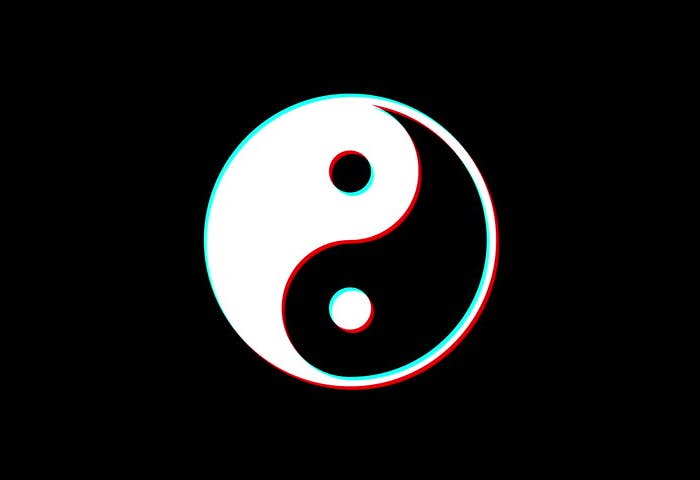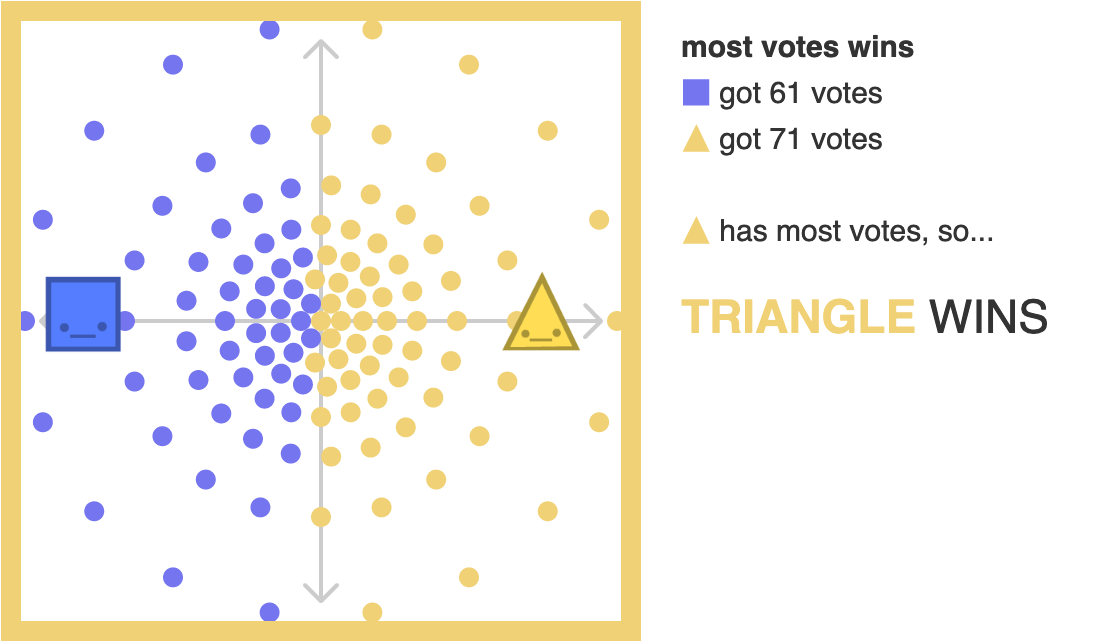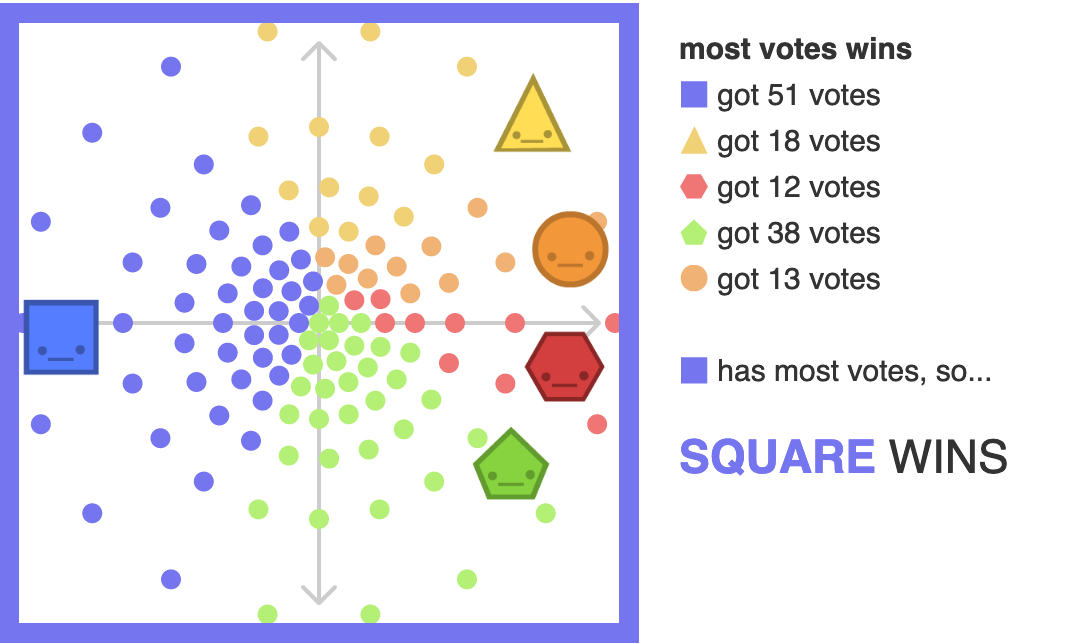Polarization
2021-01-10 · 7 min readMy take on an increasingly polarizing political landscape, how we got here, and my ideas of how to get out of it.
Over the past few years, our country has been divided greatly, and just now we are seeing the consequences of this, with the storming of the capitol. This can be shown through so many examples, where we see two ends of the spectrum. Either someone is a huge left wing social justice warrior, or a right winged bigot. If you think about this logically, it would make more sense if these radical extremes are the minorities, but we see constantly with protests and other issues that it sometimes doesn't work that way. Along with the huge division, we see the difference of views in areas, from urban Bay Area, to the rural Midwest. How can it be, that in the same country, with the same laws, and the same president, we get two groups with completely different opinions, that can't agree on almost anything? That's what I'll try and tackle in this post, and my take on how it could possibly be fixed.
The Problem
The most prevalent cause of political division has to be recommendation engines. Take our Twitter feed for example; people follow users who's views mesh with theirs, while tend to stay away from other opinions. This isn't just which people you follow, because Twitter uses impressions, likes, retweets, and so much more to find your political view, and show you more of whatever it may be. This essentially creates a bubble of sorts, where peoples own views get validated again and again, making it seem like a popular opinion, even though it might not be true. If we look at a "flat-earthers" Twitter feed we might see more of a bias towards that political view, due to liking and retweeting other flat earth tweets. This creates a constant affirmation of ones beliefs, which leads to more radical beliefs, such as QAnon etc.
Now instead of Twitter, imagine this on a large scale, where every website you see is catered to your liking, and built for your biases. This makes your entire internet experience a bubble where out of billions of viewpoints you get shown the ones you like, causing you to get pushed to an extrema. Take this in opposed to life before the internet, were news didn't change its opinion to your preferences, and you were forced to look straight into the logic of the other side.
Now if you mix this with our human tribalism (simply explained, tribalism is the idea that humans form a tribe with great bonds, which was a great survival adaptation to work together), you get the toxic polarized environment we live in. Because of this tribalism, we tend to merge our political beliefs with our identity and livelihood. The problem with this, is that once you see your beliefs and your identity as one, once you see someone with a different political belief, that means that they attack your identity. An example of this can be taken from the generic "discord debate", where people debate without any real intention of changing their views. The reason for this is since their belief is their identity, they have to forsake their identity to actually believe the other person, which leads to why you still believe something when people have proven it wrong. I think CGP Grey's Q&A video says this perfectly --
"The trick is to keep your identity separate from your opinions -- they are objects in a box you carry with you and should be easily replaceable if it turns out they're no good. If you think that the opinions in the box are who you are then you'll cling to them despite any evidence to the contrary. Bottom line: If you want to always be right, you need to always be prepared to change your mind."
The last reason I believe our system is so polarized, is because of the election system. If you think about our current political landscape, its pretty naive to believe that there are going to be two solutions to every problem, democratic and republican. So how did it become this way, with almost every issue being either democratic, or republican. The answer to this is the election system. I think Nicky Case explains this really well in their election simulator. I'll use their simulator for images in the rest of the article.
Currently we have a winner takes all election system, where each person can only vote once. If you think of the US as a diverse group of people on a political compass, and place each candidate on a compass, you get this.

Here, triangle wins with a small margin of about 10 votes, which means that they win the election. Now lets imagine this scenario with many candidates on the right.

Here, even though the right may be more popular, the left side won the election. This is because the right has many different candidates with diverse views, while the left only has one candidate. The same idea applies to real life, where a diversity of ideas, hurts political candidates. Each party, democratic and republican, try to take a stance on every single topic to influence a majority of voters, while trying to keep it as polarizing as possible to make sure they don't step on each others toes. This also is another reason why we only have 2 parties, because every other political part slowly merged into two opposing parties, themselves, against the enemies.
Not only does this mean our political system is twisted in a way which makes it so we have two polarizing views, but since they are so different, they start to divide the country. Each election since the first has slowly pushed the boundaries, becoming more and more "left" vs "right", so much so that people's identities are no longer able to change with the president. That means that when a new president is elected, its so different from ones own views, that it starts to become an affront to their identity, and therefore themselves.
Solutions
So, how can we dig ourselves out of this hole? One major idea is to disassociate yourself from your opinions, and realize when opinions are opinions. Instead of calling ourselves liberals, or some other identity, and then homogenizing ourselves try and formulate your own unique opinion on every topic. Left and right are very broad generalizations where realistically, you most likely won't agree with every single party on every single topic. What I usually do, is approach each question with an open mind, and try and hide any biases I may have from other issues.
For example regarding abolishing the police, instead of saying I'm a leftist so lets abolish the police, I would look at the pros and cons of the topic, and slowly formulate an opinion.
Another thing you can do is as I said before, think of your opinions as not you. Imagine your opinions as a bucket of rocks you carry around, and if you find a better, shinier rock, you can place it in the bucket and throw out the old one. This ideology helps you get closer to the "truth" or "best solution", whatever it may be, because you don't associate yourself with any of your opinions, and can assess each one fairly.
The one major change that would be a great help to stop polarization would be changing the way elections are decided (not the Electoral College, though I think its outdated, it doesn't really contribute much to polarization). Again, Nick Casey explains this in much more detail, so I encourage you to take a look at their website, where they compare and contrast alternative systems, but in my opinion, score voting could be a good alternative (Take a look at their website, which explains why!)
The End
Overall I think this was mostly a brain dump of what I've been thinking about for a long time, and something that has come in to light due to current events. I honestly believe that if this problem can get solved, and we can realize our own biases, the world can become a better place with many diverse views.
I hope that this can help you in some way or another, be it in you actually incorporate it into your life, or if I've offered up an interesting opinion to think about.
